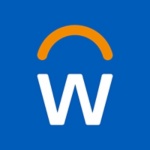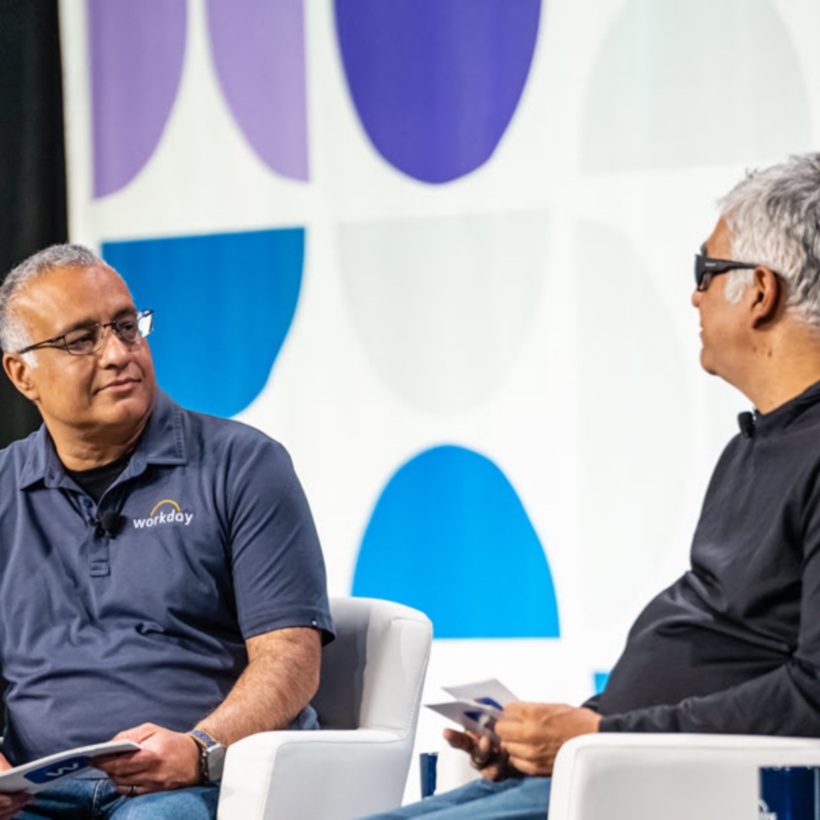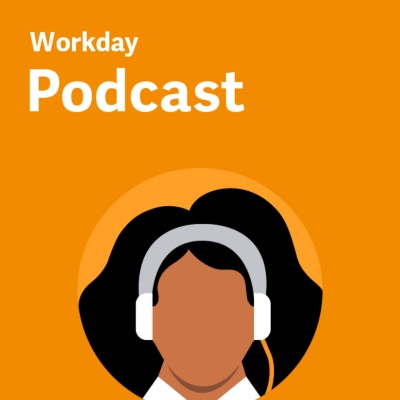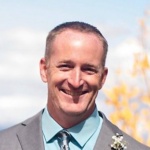Chris Bledsoe: Welcome to the Workday podcast. In order to be recognized as a Workday Developer Star, one of the key requirements is to have made a significant impact on the Workday developer community. That's why Krzysztof Zegadło, Senior Workday Technical Consultant at PwC was the perfect candidate to be one of this year's Developer Star winners. As an active contributor to the Workday developer forum, he has shared his knowledge and expertise with the community through over 160 posts. Whoa. I'm your host, Chris Bledsoe. And on this episode of the Workday podcast, I will be talking with Krzysztof about his journey to become a Workday Developer Star, his experiences with the Workday community, and his insights on the future of Workday development. Krzysztof, welcome, and thank you for joining us on the show today.
Krzysztof Zegadlo: Hey.
Bledsoe: Hi. So tell us a little bit about your journey about how you got here and how you kinda got involved in doing all this.
Zegadlo: So first, I would like to say thank you for the nomination and regarding as I'm here. That's quite, quite a long history. Because, uh, you know, you can imagine that some typical path to becoming a developer is when you go from, from the mass studies or, or informatics, then you start to be a coding programmer, for example, from Java, then you can start doing something in Workday Extend. So this is maybe more typical. My path was not so typical. I started in university as a physicist. My area was quantum physics, deterministic chaos, and so on and so on. And after that, uh, I decided to change a little bit in my life, so I moved to Workday. First few months of this journey was in the functional area. So I started doing some configuration absence. Later I started to deal with BIRTs. And finally, I came up to Workday Extend. So, I'm very happy that today I'm here where I am.
Bledsoe: Well, that's fantastic. I think that's such a fascinating story to go from being a quantum physicist to a developer. So I'm kinda curious, what you've learned as a quantum physicist, how has that helped you be a developer?
Zegadlo: Maybe it's difficult to imagine that there can be some common factors in both areas, but I would say that the first one is methodology. When you work in your scientific career during scientific investigations, you need to dive very deep into some topics to understand mechanisms to solve some difficult phenomena to describe it. So it is something very common in Workday Extend when sometimes you have to deep dive in, investigate in, let's say, in Orchestration, which function to use, and so on. And of course, in my scientific path, I also do some programming, by using mathematics, Mathematica, MATLAB, and so on. So I had some experience. This is quite a different language compared to what we are doing in, in Extend. So compared to scripting, there are some, you know, general things which are common in all areas also. I, I think that experience helped me.
Bledsoe: Yeah. I would also think it's part of the curiosity, right? Like you're curious about how–
Zegadlo: Yeah. Yeah.
Bledsoe: --the universe works and then bringing that same kind of curiosity into your work and what you're building and designing for, for Workday Extend.
Zegadlo: Yeah, to understand and, you know, it's always better when you need to do something to understand it deeply. So, not to do, "Okay, it works, so I, I will leave it." No. I first need to understand the mechanism of exactly what something is inside the coat and inside the orchestration. Later, I can apply to be sure that I know what I'm doing, yeah.
Bledsoe: Well, you know, that's really cool too because what it makes me realize is that it's part of your own nature to understand how it works, not just to solve it, the problem, and get it done like you were saying earlier, but understand it. Which actually lends really nicely and through your work that you've been doing on the developer forum, right? Because you have this deeper understanding of how the technology works, you're able to help others who may not have that same level of deep technology expertise to be able to learn how to do it and, and be better at it. So I think it finally clicked in my mind like, ah, that's why Krzysztof does what he does. That makes total sense. So before you started working with Workday Extend, did you have much experience working on Workday either as an integrator, perhaps, or using Studio, or were you doing more administrative configuration type of stuff?
Zegadlo: Mostly, it was a functional area. So absence, uh, for example. But absence is the more technical topic from the functional area. Uh, but, uh, from the technical perspective, it was BIRT. So, maybe for Studio, I used to be more for the BIRTs than for the integrations, of course, also some experience in integration, but more in doing BIRT.
Bledsoe: Yeah, awesome. Yeah. BIRT Reporting. I've got a lot of people that know that well. So that's really cool. So how many kinds of projects have you had an opportunity to work on with Extend? Or maybe what is the current project you're working on with Extend?
Zegadlo: I can say that for projects, some of them are ready, some are still under construction. So among them are mailers, our product, to customize sending emails to clients, choose the proper groups, and then configure it and so on. The next one I could say is a CV generator where you can fully customize how they should look for the particular person from a particular group. And the most recent one is document tags where you can assign very wonderful colored tags to the worker documents based on some assumptions. So you can assign time tags like the year of, let's say, creation of the document. You can also assign location tags based on the worker's primary position, for example, company tax cost center, and so on. Purging, for the purposes of how long it should be kept. So in general, you are managing tags, you can add tags, remove tags, create the new ones, move documents, from one type, to another. Of course, you can do this operation on the single instances, but you can do it in bulk. If you don't want to do it manually, you can also apply some automation by using Studio, for example, so this is also a very nice thing.
Bledsoe: Yeah, it's interesting. We were talking to one of the other Developer Stars earlier today. And one of the comments he made that I thought was really interesting - and I'd like to know a little bit more from you as well - is when you build out a Workday Extend app for your customer or for your company, how often do you use, like, Studio integrations? Do you usually include them or is it more of 100% Workday Extend or how do you approach that?
Zegadlo: Yeah, so of course, in many situations, Studio is the last instance of the help. If you don't know how to manage something, this last point will be Studio. So these are many situations, especially when customer requirements are very complex, especially. So I think that's it. I can see also the perspective that Studio has a quite nice tool, but in the next projects, we needed less based on today's presentation, which I was able to see that in Orchestration, there will be some new possibilities, some new functionalities to the integration also.
Bledsoe: So when you think about, uh, some of the apps that you built, what is your favorite app that you've worked on? Do you have a fave?
Zegadlo: I would say that this, uh, CV generator and this document tags because, uh, hmm, of, of the possibilities, which they extended compared to the standard functionality available for, for the customer. So this is one point, another important aspect is that the apply tools, which were needed to build it. So for example, for document tags, it was necessary to build a couple of orchestrations. So it was also a very good place for me to learn how to use it.
Bledsoe: That's cool. So, uh, when you work on some of the applications, uh, how many people typically work together on this? Is it just yourself? Or do you have like a few of you working on it?
Zegadlo: Yeah.
Bledsoe: And I'm curious how you break up that work as well?
Zegadlo: Regarding this recent one with document tags, it was necessary to involve a couple of developers. So this is also not an easy thing to coordinate such work. Currently, it was needed to use Azure to keep the versions. We needed to decide which path to choose if everything will be in one version with many branches or maybe we will separate versions, so, currently, we choose the second one approach. But, still, this is something which I hope looking at, at you, Chris, that on the developer side this will be also some tool which significantly simplified this process with coordination of, of many developers.
Bledsoe: So I'm kinda curious. So we came out with App Builder, right, in the last month or so. Are you guys starting to use App Builder? Or are you guys more of an IntelliJ cofactor?
Zegadlo: Uh, I can see that App Builder can also be a useful tool. Extend can be 90% in idea, but sometimes, it's necessary, even if you can not deploy something and then you will move to App Builder and you will see that it is deployed, so it will still fix.
Bledsoe: Yeah, that makes a lot of sense. You're one of our top posters, right, on the dev forum. What makes you want to do that? Like, what is it that gets you excited about helping out other developers and stuff?
Zegadlo: I didn't plan it, I started to use the forum this year in January to look for some topics to find some solutions. I found the first one, the second one, but later, I started to read other’s posts. I noticed that, uh, okay, someone is asking how to resolve it, but I have it in my code. Okay. I will write a response. Okay? Then I noticed the next case, and next. And people have exactly the same problems as you experience in your development way. It is easy even to copy, paste your solution to show them how to solve it. And this was the product of my work. So, I can say that not so some special additional effort was necessary for that.
Bledsoe: That's fantastic. I love that. So when you think about Workday Extend, what would you like to see differently? Like, if you looked at Workday Extend, you're obviously an accomplished developer. You're familiar with the tooling and what we offer. If you had $1 million and you could change anything, what would you choose?
Zegadlo: The question is regarding the Extend?
Bledsoe: Yeah, Extend. Yeah.
Zegadlo: Well, at this moment, of course, I have some topics in my mind. One of them is machine learning. This is also something which I also was interested in, in, in machine learning. I still hope that the next step will be more of that tool. But, also I would use this money to, you know, to develop further graph API, which is also a very nice tool.
Bledsoe: So what would be the advice you would give other developers, like if somebody else like, "Hey, I wanna be like Krzysztof. I wanna be able to learn how to do that." What would you recommend them doing?
Zegadlo: Do what you do if you do your work properly. As I said formerly, deep dive in all the topics. You will find many solutions. So, this is an opportunity to share all your solutions with other Extend developers.
Bledsoe: Yeah, what, what I was thinking was that as a developer, what are the skills that you think are the most important? So you mentioned earlier around just being yourself and stuff like that. But if I came to you and go, "Hey, Krzysztof, I wanna be a developer," what should I do first?
Zegadlo: Stay foolish. Stay foolish. You are interested in a topic, which you want to resolve. So you deep dive into that. You try to look for different resources and try to find the best solution. So, I think that this is in your head, in your mind that you need to not give up, not stay in one place, but go step by step. Sometimes it requires a little bit of time, but not staying in one place. Go forward.
Bledsoe: There's a lot of ways developers can learn, right? Everything from reading documentation to downloading apps and taking them apart to attending training and stuff like that. What's your preferred mode for learning how to use the new technology like Extend?
Zegadlo: Of course it is needed to review the documentation when something new appears in Workday Extend as a new product in product updates. When you go to the forum, you have this separate chapter for this product update. So please review the topics, read the documentation. Uh, what was the video? What's the demos? Then you can always go to the developer site for tutorials. What I did when Graph API appeared, so I used the documentation. I started to use API Explorer.
Bledsoe: I love that. That's great, this has really been fascinating. I really appreciate it and thank you for joining us today.
Zegadlo: Thank you, Chris.
Bledsoe: You have been listening to the Workday podcast with our guest, Krzysztof Zegadło. If you enjoyed what you've heard today, be sure to follow us wherever you listen to your favorite podcast. And remember, you can find our entire catalog at workday.com/podcast. I'm your host, Chris Bledsoe, and I hope you have a great workday.






